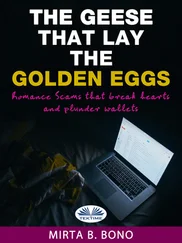Vianello hung back; not hearing his footsteps, Brunetti stopped, turned to him and raised his chin interrogatively.
‘You think it’s legitimate or you agree with me?’ Vianello asked.
‘I think it’s legitimate and I agree with you,’ Brunetti said, walked back to Vianello, and clapped him on the shoulder. ‘I don’t know what good it’s going to do for the planet or for the universe . . .’ he said and his voice trailed away.
‘But?’ Vianello asked.
‘But if you don’t go, then you avoid doing something that’s harmful, and that’s a good thing.’
Vianello smiled and said, ‘I didn’t think of it that way. All I knew was that it wasn’t right.’ After a moment, he added, ‘Besides, I’ve always wanted to learn how to milk a cow.’
That stopped Brunetti in his tracks. He took a close look at Vianello to see if he was joking. Finally he said, ‘You’re serious, aren’t you?’
‘Of course,’ Vianello answered.
Turning back towards the Questura, Brunetti said over his shoulder, ‘You paid for the coffee, so I won’t tell Signorina Elettra you said that.’
4
Since he would be passing her office, Brunetti decided to save Signorina Elettra the trip to his; besides, he was curious to learn whatever she might know about the reasons behind Patta’s request. Good as his word, he decided to say nothing to her about Vianello’s bucolic desires. The relaxed smile she gave him as he went in told Brunetti that the Vice-Questore had gone off on crusade against wrongdoing in some other location.
‘What have you managed to find about the mayor’s son?’ Brunetti asked, having no doubt that she had been in pursuit of that information.
She pushed back a vagrant curl and turned her screen towards him. ‘As you can see,’ she said, pointing to the printed form he saw there, ‘it took him eight years to finish university and another three before he passed the state exams.’
‘And now?’ Brunetti asked.
‘He works in the law office of a friend of his father’s.’
She scrolled down to another document and pointed to the screen. ‘He also has a job as a regional counsellor.’
‘Doing what?’ Brunetti asked, then, remembering that he was talking about a political position, changed it to, ‘Meant to be doing what?’
‘He has been appointed to serve as liaison between students and the regional department of sport.’ Her delivery was as neutral as Médecins sans Frontières.
‘What does that mean?’ Brunetti asked with curiosity he did not have to feign.
She typed in a few words and hit the ENTER key: a new document appeared on the screen. The young man’s name was at the top and, below it, a row of figures. ‘And this is?’ Brunetti asked.
‘It’s the payment that was made to his bank account by the regional treasury last month,’ she said. She turned the screen further in Brunetti’s direction.
The young man’s base salary was four thousand four hundred Euros a month; added to this was a fixed sum of nine hundred Euros for office expenses and one thousand nine hundred for a secretary.
‘Dare I ask the name of his secretary?’ Brunetti asked.
‘Lucia Ravagni,’ Signorina Elettra answered.
‘Is she by any chance the part owner of a shop in Campo San Barnaba?’ he asked, almost as if a voice had whispered the necessary question into his ear.
‘Yes.’
‘If he’s a lawyer and she’s running a shop, when is it that they find time to work as a regional counsellor and a secretary? And where?’ Brunetti asked.
‘There’s an office assigned to them in the Uffici Regionali.’
‘“Assigned?”’
‘A friend of mine who works in one of the offices on the second floor – their offices are on the first – says they are seldom in evidence.’
‘No doubt keeping a careful eye on sporting events,’ Brunetti suggested.
‘Or students,’ she added in the bright tone she used in response to life’s many absurdities. But then Signorina Elettra’s voice grew serious and she asked, ‘Why do we tolerate this? Why do we let them appoint their friends and their wives and their children and not go after them with clubs?’
Brunetti, as he did with increasing frequency, chose to treat her outburst seriously. ‘I think it’s because we’re a tolerant people and understand human weakness. And because, for most of us, the only people we trust fully are members of our families, so we understand when other people do, as well.’
‘Do you trust yours?’ she asked in an uncharacteristic display of curiosity.
‘Yes.’
‘Everyone in it?’
‘More than I would the state, or most of its representatives, yes,’ Brunetti said and then, to extricate himself – perhaps both of them – from the unwonted intimacy of the conversation, said, ‘I’d like you to find out anything else you can about them.’
‘I’ve asked some people,’ was her answer.
Very conscious of the fact that, as a civilian employee, Signorina Elettra had no official role in the work of the police and had taken no oath to the state, and thus should in no way be made privy to the investigations of the police, Brunetti said, ‘The mayor wants Patta to be sure that nothing is made public about the bribes her partner has been paying the vigili.’
She hit a key, and the screen grew dark. Idly, she turned it towards her but kept her eyes on Brunetti. ‘I wonder what’s going on.’
‘Indeed,’ Brunetti said.
As if surprised by her own realization, she said, ‘There’s something of the purity of a syllogism in my eagerness to work on this.’
‘Meaning?’
‘I want bad things to happen to politicians. The mayor is a politician. Therefore, I want bad things to happen to the mayor.’
Her smile positively glowed. ‘It leaves me little choice, does it?’ she asked.
‘As a syllogism, there is no flaw in it,’ Brunetti said, logic having been one of his heart’s delights at university. Then, soberly, ‘But it deals with emotions, not really with facts, doesn’t it, so I’m not sure that it is within the mandate of the syllogism. At least as a means of proof.’
Her look was sober when she said, ‘There is no error of fact, Dottore: not in the first premise, and not in the second, and certainly not in the conclusion.’ Then, lightly, ‘I’ll let you know whatever I find.’
It made no sense. It made no sense. It made no sense. Brunetti repeated this to himself as he climbed the steps to his office. Then, for the last flight: no sense, no sense, no sense. What did the mayor have in mind when
he asked Patta to see if things could be kept quiet? The more people who were told to keep something quiet, the greater the certainty that it would become public information. Or was the mayor, like so many of his colleagues, convinced that he was somehow above the normal rules that governed human behaviour? Why else would politicians continue to speak so openly of their crimes and misdemeanours on telefonini that even they must know were open to the ears of many of the forces of order? Why continue to discuss bribes with the men who paid them? Why give thousands of Euros to prostitutes and, when caught, claim it was a payment made to keep them from falling into prostitution? How stupid they must believe us to be; what contemptible sheep we are to them.
Surely, not all politicians could be like this. Were this the case, Brunetti realized, the only options open to a decent person would be emigration, or suicide.
His phone was ringing when he entered his office. Believing it might be Patta, suddenly returned to the Questura, he answered with his name.
‘You know the boy who doesn’t talk?’ Paola asked. ‘At the dry cleaner’s?’
Читать дальше












